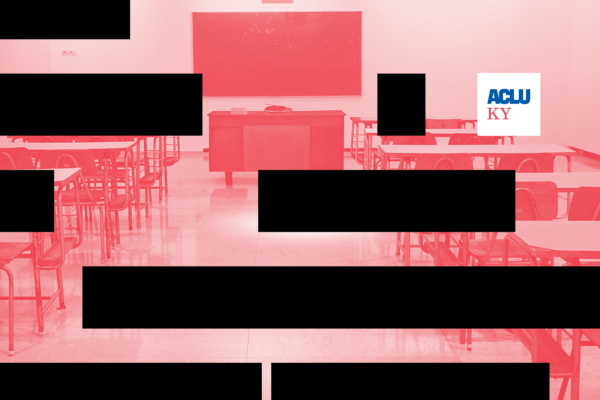Written by Brennan Eberwine, a junior at DuPont Manual High School in Louisville
Recently, in my AP US History class, we learned about the movement to deceptively rebrand the Civil War and the south’s role in that war as a “lost cause.” The lesson covered new methods to oppress African-Americans, such as poll taxes and grandfather clauses, developed in response to the end of slavery. In my English class, I’ve been reading Zora Neale Hurston’s “Their Eyes Were Watching God,” a book that explores Black womanhood and inspired Alice Walker’s 1982 Pulitzer Prize winning novel “The Color Purple.” However, if proposals such as House Bills 14, 18, and Senate Bill 138 become law, it could be illegal for my classmates and I to learn about any of this American history.
Over the past year there has been a movement to ban “critical race theory” in schools. Critical race theory is a theoretical framework, typically taught in graduate level courses. It examines various facets of American life to analyze how institutions uphold racism. Examples include unequal access to quality medical care and laws like the 1994 crime bill, which disproportionately incarcerates Black Americans. Although these laws do not specifically discriminate against race in their language, they disproportionately harm minorities.
However, these concepts are very nuanced and difficult to grasp, so they are mostly taught in higher education. Legislation in the Kentucky General Assembly is not about critical race theory at all, but removing “divisive” concepts such as accurate depictions of slavery and the realities of systemic racism. Instead, these bills seek to replace this reality with a fabrication of American History – one focused on American valor and dreams.
Although SB 138 does promote civics education that includes events that indict America’s ugly racism, such as the Supreme Court case Plessy v. Ferguson and Martin Luther King Jr.’s letter from Birmingham Jail, the bill makes sure to specifically say that despite these ugly truths, the institutions America upheld do not account for all racial disparities. This bill attempts to revise American history and say that the past somehow has no effect on the present.
Like most countries, the United States has a checkered and complicated history. There is good among the bad and bad among the good. Taking out either would give an incomplete history and an insufficient education for Kentucky students. The idea that students are not mature enough to learn about and discuss American history is insulting. Believe it or not, most students don’t like being lied to. We want to have an enriching school experience that challenges us and helps us grow into better people, not one that keeps us stagnant, apathetic, and ill-informed.
Instead of holding back students' education because of fear of people finding out about racism, I suggest the General Assembly focus on funding education, treating teachers and students with respect, and making sure our schools create students with a passion for learning who are college or career ready. They say these bills are designed to inspire patriotism and love of country by showing only our best parts, but they couldn’t be less patriotic. We are a flawed nation constantly in search of a more perfect union. We will never achieve that if we ignore our past.
Take action now:
Click below to add your name urging lawmakers to OPPOSE any attempts to censor teachers and students. You can also dial 1-800-372-7181 to leave a message asking them to OPPOSE Senate Bill 138. Calling takes only a minute and you don't even need to know who represents you, plus you can do it every day!



